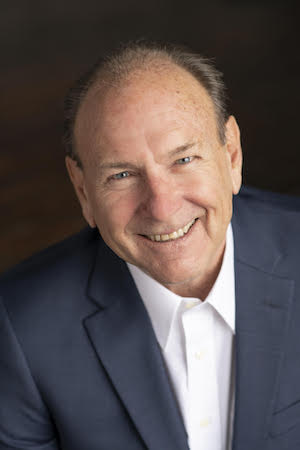Schuetz: Who Ya Gonna Call About Money Laundering?
Whistleblowers need a process and they need protection, or else Nevada’s problems will persist
7 min

“Because money doesn’t wash itself.”
— Anonymous
In 2011, I was appointed to the California Gambling Control Commission by Gov. Jerry Brown. I don’t believe he wanted to appoint me to the commission, as that was a significant political chip for him to play, and I had always been a casino guy, not a political player. But Bill Eadington heavily leaned on one of Brown’s aides on my behalf, and someone from Harry Reid’s office (then U.S. Senate majority leader) placed a call to Gov. Brown’s office (I have friends in high and low places in Nevada).
The next thing I knew, I was moving to Sacramento.

Most appointments to the California Commission went to political friends and kin and are based more on a political calculus than on any seemingly relevant fitness-to-serve criteria. They generally looked to lawyers, accountants, and law enforcement, though there are exceptions.
This was best demonstrated by the fact that once I joined the commission and the folks in the state got to know me, I was also asked to serve as the gaming consultant to the governor’s office, as well as in a like capacity for the heads of the committees that oversaw gaming in both the California House and Senate. I was not paid for any of these additional involvements; apparently, the extra work was its own reward.
I always envisioned myself working with legislative assistants to help draft a gaming bill (which I did) and later being called to the governor’s office to draft the veto message for that bill (which never happened).
The reason that I was selected to assist the governor’s office and both legislative branches, as well as serve as a gaming commissioner, was based on the saying that in the land of the blind, the one-eyed man is king. In other words, I was the first person on the California Gaming Control Commission who had any experience in real-life gaming environments — and I had over 35 years of it. That is why everyone interested in gaming was borrowing me.
This absence of actual gaming experience by regulators is typical in most regulatory agencies. Again, the tendency is to select used politicians, lawyers, accountants, and law enforcement types. Casino folks, not so much.
Relevant expertise, perhaps?
I have always thought this was unwise and that if the jurisdiction truly desired competent participation in the regulatory process, it would make room for some former casino folks. That means that they might need to pay a bit more. Still, I believe there are individuals like me who had a great and rewarding time within the industry and wanted to give something back. This could be accomplished by serving the industry by providing relevant expertise in the regulatory process.
I started in the casino side of things as a college student, dealing cards and dice at night. In all the varied positions I held, including CEO of a Las Vegas gaming company, I spent a considerable amount of time not in my office. I have long believed that too many executives spend way too much time sequestered in their offices.
For me, I might be found in the employees’ dining hall, in the kitchens, in wardrobe, or behind the hotel desk. I also spent a lot of time on the casino floor, for I considered it the heart of the operation, and I felt comfortable there.
I also wanted to keep my eye on things in the casino. It helped me get to know my fellow employees and the casino’s customers, and it also contributed to maintaining the integrity of the operation.
I experienced many instances while managing by walking around where someone working on the floor would contact me and mention something important. A wide range of information was important to me, such as who was buying the drinks after the shift, who was riding to work with whom, who might be dealing controlled substances, and other details that could be relevant.
Somebody knew something
The fact that I have spent a significant portion of my life on a casino floor has shaped my reaction as I have watched the Nevada regulatory entities respond to the recent string of money laundering issues involving MGM, Resorts World, and Wynn. And rumor has it they may have missed a property or two.
After reading the complaints, especially those crafted by the federal authorities, I believe that many people in the buildings must have known mischief was afoot. For many years in the Nevada casino industry, the path of least resistance in keeping a job was to keep your head down and your mouth shut. We had an expression for it, and that was “dummy up and deal.”
One thing that is clear about Nevada is that, despite the policies in place to prevent money laundering and exclude inappropriate individuals from becoming casino guests during the time addressed in the recent hearings, they were ineffective. Embarrassingly ineffective. They failed.
What to do?
There has been a relatively significant degree of energy by gaming firms, especially those recently rocked by scandal, to develop better processes for employees to bring information to the attention of the company. The primary failure of most of these efforts is that it is a company effort.
Despite the listed safeguards regarding anonymity and protection from retaliation, there are two significant shortcomings in these programs.
First is the lack of trust in the company, especially when the complaint involves a senior member(s) of management. I believe that most employees would think that is a slippery slope.
The second issue is the lack of a monetary reward to compensate the individual for the risk associated with reporting inappropriate behavior. Such a reward is a typical attribute of government-run whistleblower programs.
There is a history within the casino industry associated with these government-managed whistleblower programs. In 2013, MGM Resorts International was ordered to pay a whistleblower $325,000 and reinstate the individual. This involved a violation of the Securities and Exchange Commission (SEC) regulations by MGM Resorts.
In 2016, IGT agreed to pay a $500,000 penalty for firing an employee who had reported possible financial improprieties to the SEC. What was interesting about this case was that it focused on the anti-retaliatory aspect of the whistleblower provision, as it turned out that the company was correct in its reporting, but fired an employee with a good work record for reporting his concerns to the SEC.
Additionally, in 2016, Elaine Wynn petitioned the Nevada Supreme Court for whistleblower protections related to her disclosures during the lengthy legal disputes between her and her ex-husband Steve Wynn. This became entangled in the mass of litigation surrounding the two parties.
Two key elements of effective whistleblowing
It is generally understood that whistleblower programs not affiliated with the company are highly productive ways to address inappropriate behavior. The two key elements typically understood to drive this success are the trust in the entity to which complaints are filed and the potential for monetary rewards.
I bring this up because the Nevada gaming regulatory entities appear to be in a situation where they are being embarrassed by the ongoing drama of misbehavior within some of the largest casinos in Las Vegas. This is terrible for the image of the industry, the regulators, and the state.
Nevada could utilize the numerous employees of casino companies to help ensure compliance with key laws and regulations relevant to the casino industry through a whistleblower program.
The Nevada gaming regulators list a 24/7 phone line for use in the event a person wishes to report “Disputes/Regulatory Violation/Criminal Activity/Inquiries.” They also have an email address in the same section of their website for an individual to use if they have information “relative to Nevada Gaming Crimes.”
There is no conversation about confidentiality, retaliation protections, or monetary incentives. This is a pretty lame effort. It is as if they do not want this process to work.
The regulators could introduce a real whistleblower program, offering confidentiality, protection against retaliation, and rewards based on a formula driven by the size of the fines, penalty payments, or forfeitures. The potential problems here include budget considerations for building such a program and a lack of trust among casino employees, who may be hesitant to believe that regulators will protect them from retaliation.
A better solution, I would argue, is that Nevada’s gaming regulatory entities could come to understand the vast array of federal programs already available, which have good reputations for protecting employees and also pay a percentage of collections should the tip result in fines and similar penalties. The main task of the regulators would then be to ensure that these processes were made aware to the casino employee population.
The federal programs that may be relevant to the casino industry include the Financial Crimes Enforcement Network (FinCEN), Securities and Exchange Commission (SEC), Internal Revenue Service (IRS), and the Commodity Futures Trading Commission (CFTC).
I would suggest that Nevada regulators initially focus on the low-hanging fruit and begin a process to address money laundering, which leads us to FinCEN. A review of the FinCEN process is here.
Utilizing this program makes sense because it is up and running, and so the infrastructure is complete. The only obligation of the regulators is to ensure that the casinos get this information into the employees’ hands in an understandable format at least once a quarter.
This will help enlist a large bloc of people who can assist the state in eliminating money laundering, as well as put the casino operator on notice that a significant number of people within the casino are watching.
If regulators continue their current approach and operators maintain the status quo, then the state will continue to receive the same results.
That, I’m afraid, is unacceptable. It is time for regulators to become part of the solution by bringing the very successful federal whistleblower programs to the attention of the casino employees.
—
Richard Schuetz entered the gaming industry working nights as a blackjack and dice dealer while attending college and has since served in many capacities within the industry, including operations, finance, and marketing. He has held senior executive positions up to and including CEO in jurisdictions across the United States, including the gaming markets of Las Vegas, Atlantic City, Reno/Tahoe, Laughlin, Minnesota, Mississippi, and Louisiana. In addition, he has consulted and taught around the globe and served as a member of the California Gambling Control Commission and executive director of the Bermuda Casino Gaming Commission. He also publishes extensively on gaming, gaming regulation, diversity, and gaming history. Schuetz is the CEO of American Bettors’ Voice, a non-profit organization dedicated to giving sports bettors a seat at the table.






